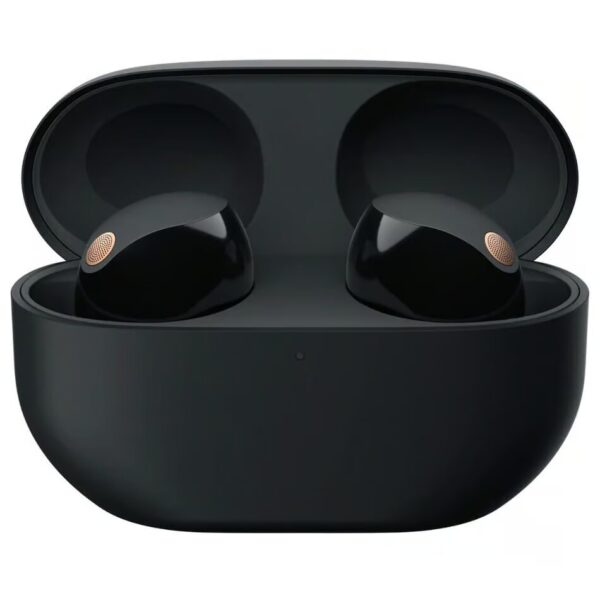
In the age of digital technology, the demand for high-quality video recording devices is ever-increasing. Whether you’re an avid filmmaker, a security enthusiast, or simply someone who loves to capture life’s moments, choosing the right Digital Video Recorder For Tv can make all the difference. But with so many options available, how do you find the best one to suit your needs? This comprehensive guide will walk you through the key factors to consider when selecting a DVR.
Different Types of DVRs
1. Standalone DVRs
Standalone DVRs are independent units that don’t rely on a computer or other devices to function. They are commonly used in security systems and for personal recording needs. These devices are user-friendly, come with built-in hard drives, and often feature remote access capabilities.
2. PC-Based DVRs
PC-based DVRs leverage the power of your computer to record and store video footage. They require DVR software and capture cards to function. These systems offer more flexibility and expandability compared to standalone DVRs but can be more complex to set up and maintain.
3. Network DVRs (NVRs)
Network DVRs, also known as Network Video Recorders (NVRs), are designed for IP cameras and are connected via a network. They are ideal for larger setups, such as business security systems, due to their ability to manage multiple cameras and high-resolution footage efficiently.
4. Cloud-Based DVRs
Cloud-based DVRs store video footage in the cloud, providing easy access from anywhere with an internet connection. They offer scalability and security, as your data is not stored locally. However, they require a reliable internet connection and may come with subscription fees.
Key Features to Look for in a DVR
1. Storage Capacity
The amount of storage your DVR offers is crucial. This depends on how much footage you plan to record and the quality of the video. Higher resolution videos take up more space. Look for DVRs that offer expandable storage options, such as external hard drives or network-attached storage (NAS).
2. Video Quality
Video quality is a vital aspect of any DVR. Ensure that the DVR supports high-definition (HD) or even 4K recording if you need crystal-clear footage. The quality of the video is especially important for security purposes and professional video production.
3. Number of Channels
The number of channels a DVR supports determines how many cameras you can connect to it. For home use, a 4 to 8 channel DVR might suffice. However, for business or larger properties, consider a DVR that supports 16 or more channels.
4. Remote Access and Mobile Viewing
Modern DVRs come with remote access capabilities, allowing you to view live or recorded footage from your smartphone, tablet, or computer. This feature is particularly useful for security purposes, as it lets you monitor your property in real-time from anywhere.
5. Motion Detection and Alerts
Motion detection is a must-have feature for security DVRs. It enables the DVR to start recording only when motion is detected, saving storage space and making it easier to review footage. Additionally, some DVRs offer alert notifications via email or app when motion is detected.
6. Backup and Export Options
Ensure that the DVR offers easy backup and export options. This is important for both security and personal use, as it allows you to save important footage to an external drive, cloud service, or other storage solutions.
Budget Considerations
1. Initial Cost vs. Long-Term Investment
While it’s tempting to opt for the cheapest DVR available, consider the long-term investment. A higher-quality DVR with more features might have a higher upfront cost but can save you money and hassle in the long run by providing better performance and durability.
2. Subscription Fees
If you’re considering a cloud-based DVR, factor in any subscription fees for storage and additional features. Make sure the recurring costs fit within your budget and that the service provides good value.
3. Additional Equipment
Budget for any additional equipment you might need, such as cameras, cables, and mounting hardware. Some DVR packages come with everything you need, while others require separate purchases.
Brand Reputation and Reviews
1. Research and Reviews
Before making a purchase, research different brands and read reviews from other customers. Look for brands with a good reputation for quality and customer service. User reviews can provide valuable insights into the reliability and performance of the DVR.
2. Warranty and Support
Check the warranty and support options offered by the manufacturer. A good warranty can provide peace of mind, and responsive customer support is essential if you encounter any issues with your DVR.
Use Case Scenarios
1. Home Security
For home security, look for a DVR that offers high-resolution recording, motion detection, and remote access. A 4 to 8 channel DVR is usually sufficient for covering key areas around your home. Opt for a system that is easy to set up and use, with reliable support and good reviews.
2. Business Security
Businesses often require more extensive security setups. Choose a DVR that supports multiple cameras (16 channels or more) and offers advanced features like remote access, motion detection, and alert notifications. Ensure the DVR can handle high-resolution footage and offers ample storage capacity.
3. Personal Use
For personal use, such as recording family events or amateur filmmaking, focus on video quality and ease of use. A standalone DVR with high-definition recording capabilities and expandable storage is a good choice. Consider additional features like editing software compatibility and easy export options.
4. Professional Filmmaking
Professional filmmakers need top-of-the-line DVRs with 4K recording capabilities, large storage capacity, and advanced features like time-lapse recording and multiple input options. Look for a DVR that integrates well with professional editing software and offers robust support and warranty options.
Choosing the best Digital Video Recorder for your needs involves careful consideration of various factors, including the type of DVR with key features, budget, brand reputation, and specific use case scenarios. By understanding these elements and evaluating your unique requirements, you can select a DVR that will serve you well and provide high-quality video recording capabilities for years to come.
Whether you’re enhancing your home security, setting up a business surveillance system, capturing personal memories, or pursuing professional filmmaking, the right DVR can make all the difference. Invest in a device that offers the features and reliability you need to achieve your goals and ensure peace of mind.










